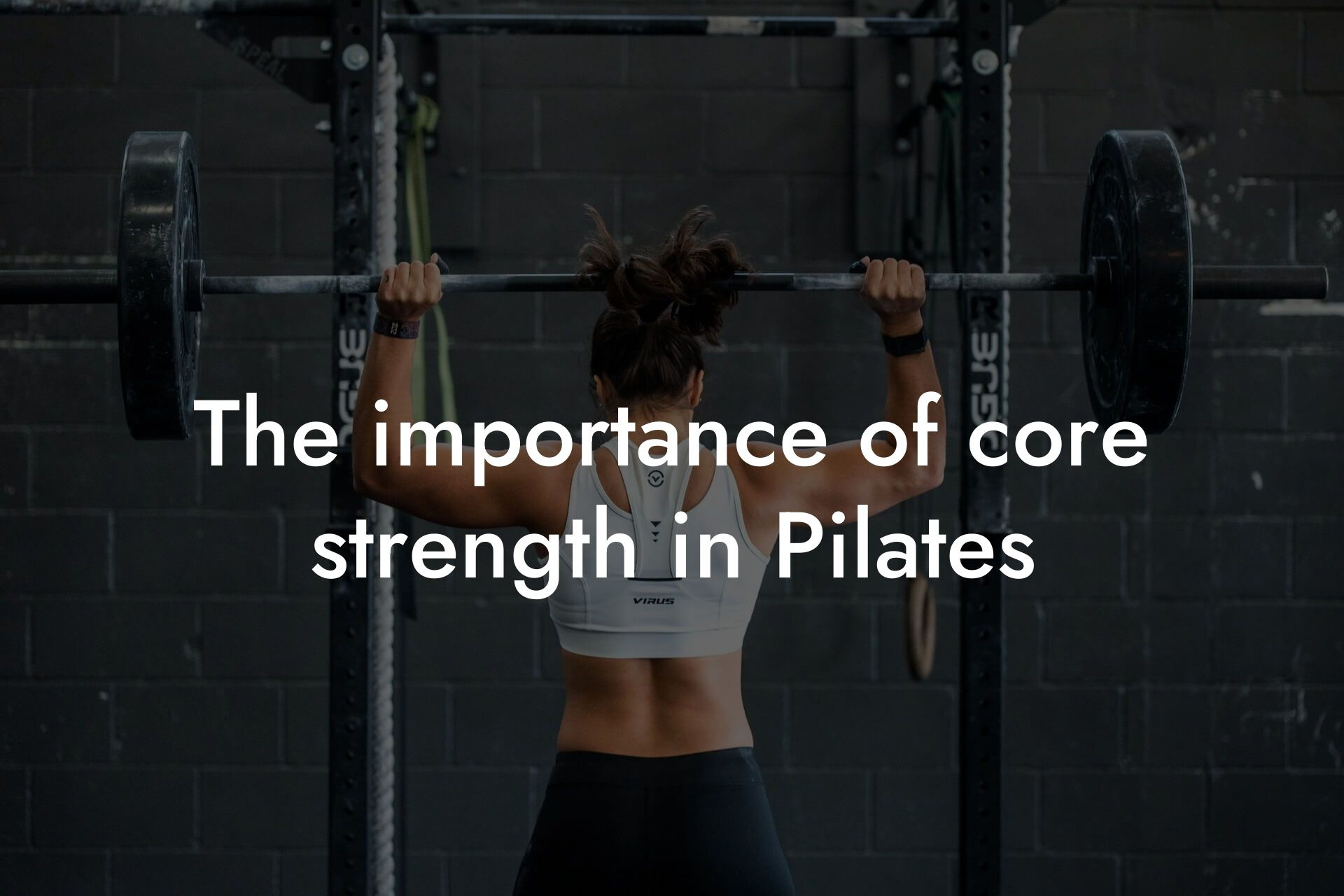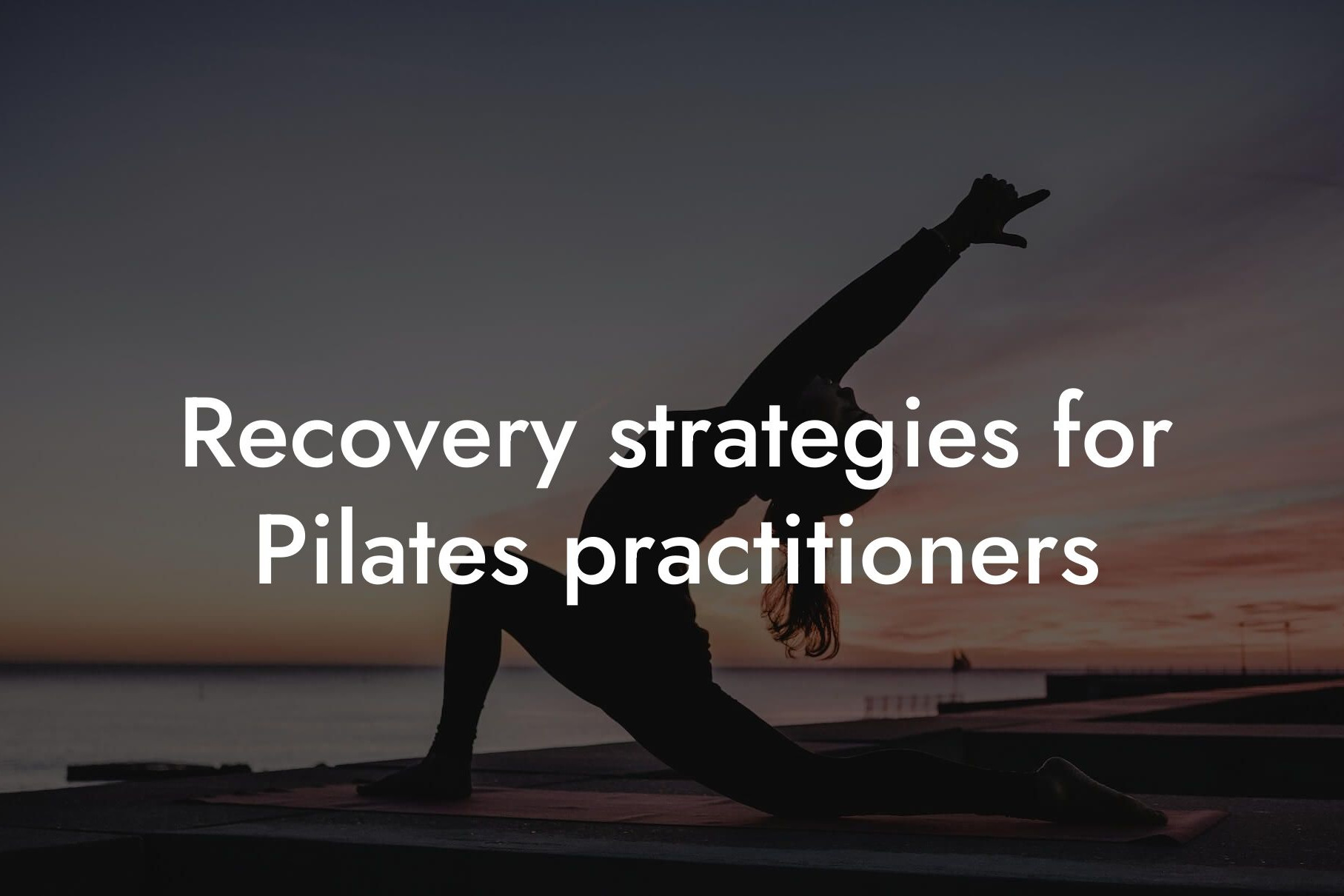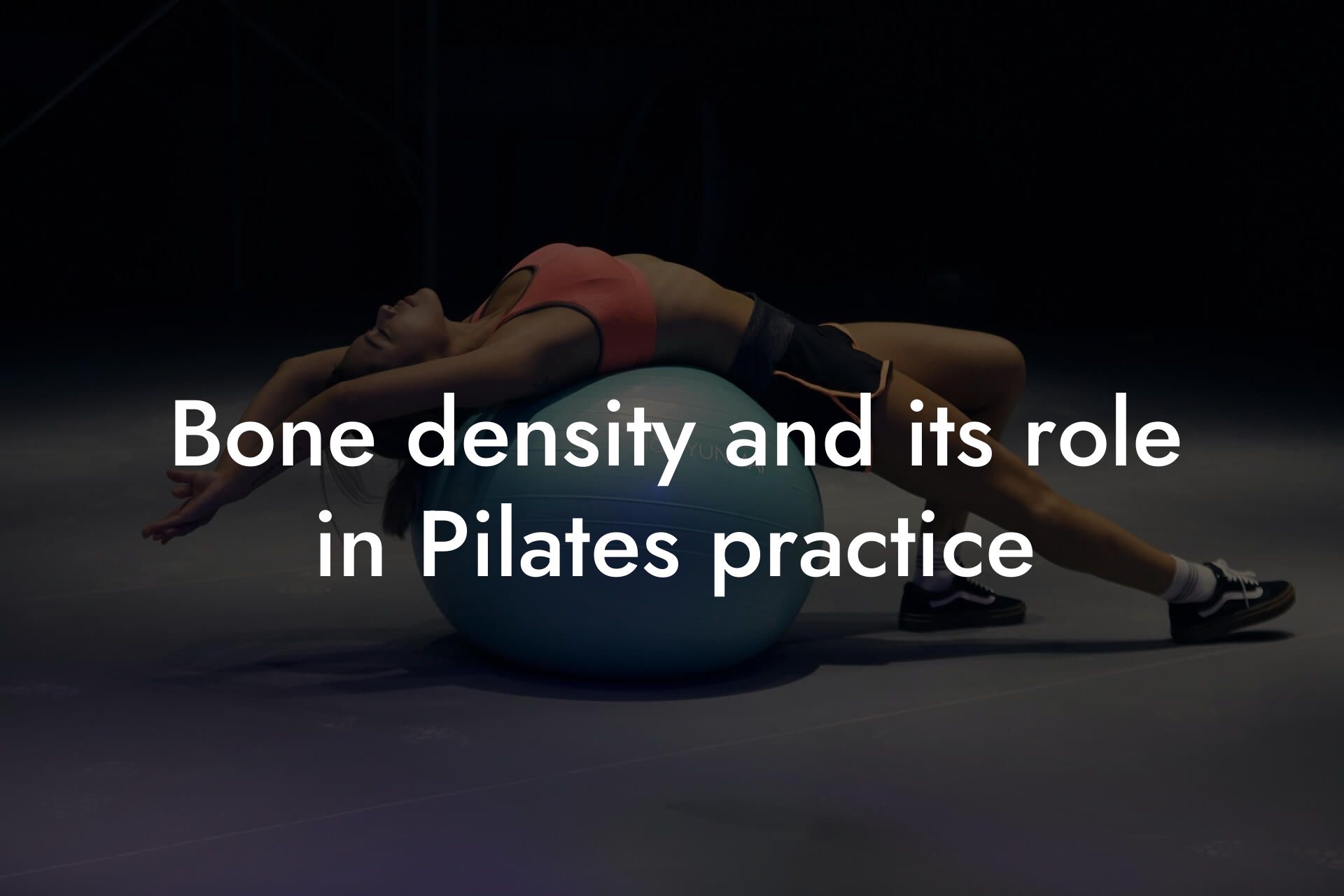Understanding the Benefits of Pilates
As a high-earning professional, you understand the importance of maintaining a healthy and fit physique. Pilates is a low-impact form of exercise that can help you achieve your fitness goals, improve your overall well-being, and even enhance your professional performance. By incorporating Pilates into your balanced fitness routine, you can experience a range of benefits, including increased core strength, improved flexibility, enhanced posture, and reduced stress levels.
Table of Contents
- Understanding the Benefits of Pilates
- Identifying Your Fitness Goals
- Choosing the Right Pilates Method
- Creating a Balanced Pilates Routine
- Incorporating Pilates into Your Existing Fitness Routine
- Using Pilates to Enhance Athletic Performance
- Monitoring Your Progress with DEXA Scans
- Frequently Asked Questions
Identifying Your Fitness Goals
Before you start integrating Pilates into your fitness routine, it's essential to identify your specific fitness goals. Are you looking to improve your overall physique, increase your bone density, or reduce your body fat percentage? Perhaps you're seeking to enhance your athletic performance or simply feel more energized throughout the day. Whatever your goals may be, Pilates can help you achieve them. Take some time to reflect on what you want to achieve through your fitness routine, and use this as a guide to create a personalized Pilates plan.
Choosing the Right Pilates Method
There are several Pilates methods to choose from, each with its unique focus and benefits. The most popular methods include:
- Mat Pilates: A low-impact, floor-based workout that targets the core, arms, and legs.
- Reformer Pilates: A machine-based workout that provides resistance to help build strength and improve flexibility.
- Contemporary Pilates: A modern approach that combines traditional Pilates with other exercise methods, such as yoga and dance.
- Classical Pilates: A traditional approach that focuses on the original Pilates method developed by Joseph Pilates.
Consider your fitness goals, preferences, and any physical limitations you may have when choosing a Pilates method. You may also want to consult with a certified Pilates instructor or fitness professional to determine the best approach for you.
Creating a Balanced Pilates Routine
A well-rounded Pilates routine should include a mix of exercises that target different muscle groups, improve flexibility, and enhance core strength. Aim to incorporate a combination of the following exercises into your routine:
- Core exercises: Focus on exercises that target your core muscles, such as the hundred, teaser, and side bends.
- Flexibility exercises: Incorporate exercises that improve your flexibility, such as leg swings, chest expansions, and spine stretches.
- Strength-building exercises: Include exercises that build strength, such as squats, lunges, and leg press.
- Bodyweight exercises: Use your own body weight as resistance to build strength and improve flexibility.
Remember to start slowly and gradually increase the intensity and duration of your workouts as you become more comfortable with the exercises.
Incorporating Pilates into Your Existing Fitness Routine
If you already have an existing fitness routine, you can easily incorporate Pilates into your schedule. Consider the following options:
- Replace one or two cardio sessions with Pilates workouts per week.
- Add Pilates exercises to your existing strength-training routine.
- Incorporate Pilates into your warm-up or cool-down routine.
Remember to listen to your body and adjust your routine accordingly. It's essential to allow for rest days and recovery time to avoid injury or burnout.
Using Pilates to Enhance Athletic Performance
If you're an athlete or engage in regular physical activity, Pilates can help you enhance your performance and reduce your risk of injury. By incorporating Pilates into your training routine, you can:
- Improve your core strength and stability.
- Enhance your flexibility and range of motion.
- Increase your power and speed.
- Reduce your risk of injury and improve your overall durability.
Consider working with a certified Pilates instructor or fitness professional to develop a customized Pilates plan that targets your specific athletic goals and needs.
Monitoring Your Progress with DEXA Scans
As you incorporate Pilates into your fitness routine, it's essential to monitor your progress and track your results. At Tano Performance Group, we offer DEXA scans, a comprehensive body assessment tool that provides valuable insights into your body composition, bone density, and overall physique. By tracking your progress with regular DEXA scans, you can:
- Monitor changes in your body fat percentage and muscle mass.
- Track improvements in your bone density and overall health.
- Adjust your fitness routine and nutrition plan accordingly.
Our team of experts will work with you to interpret your DEXA scan results and provide personalized recommendations to help you achieve your fitness goals.
Integrating Pilates into your balanced fitness routine can have a profound impact on your overall health, physique, and professional performance. By understanding the benefits of Pilates, identifying your fitness goals, and creating a well-rounded Pilates routine, you can achieve your desired results and take your fitness to the next level. Remember to incorporate Pilates into your existing fitness routine, use it to enhance your athletic performance, and monitor your progress with regular DEXA scans. With dedication and consistency, you can experience the transformative power of Pilates and achieve your full potential.
Frequently Asked Questions
What is Pilates and how does it benefit my overall fitness?
Pilates is a low-impact, bodyweight-based exercise method that targets core strength, flexibility, and body control. It benefits your overall fitness by improving posture, balance, and coordination, while also reducing the risk of injury and enhancing overall physical performance.
How does Pilates differ from other forms of exercise, such as yoga or weightlifting?
Pilates focuses on slow, controlled movements that engage the core muscles, whereas yoga emphasizes holding poses and breathing techniques. Weightlifting, on the other hand, focuses on building muscle mass through resistance training. Pilates provides a unique combination of strength, flexibility, and body awareness that sets it apart from other forms of exercise.
What are the key principles of Pilates?
The key principles of Pilates include centering, concentration, control, precision, breath, and flow. These principles guide the practice of Pilates and help individuals achieve optimal physical performance and overall well-being.
How often should I practice Pilates to see results?
It's recommended to practice Pilates at least 2-3 times per week, with a minimum of 30 minutes per session. Consistency is key to seeing results, so aim to make Pilates a regular part of your fitness routine.
Can I do Pilates at home, or do I need to join a studio?
You can do Pilates at home with online tutorials, DVDs, or apps, or you can join a studio with a certified instructor. Both options have their benefits, but working with a certified instructor can help you achieve better form and results.
What type of equipment do I need to practice Pilates?
You can practice Pilates with or without equipment. The most common equipment used in Pilates includes the Reformer, Cadillac, Wunda Chair, and Barre. However, you can also use your own body weight and resistance bands to modify exercises.
Is Pilates suitable for beginners?
Absolutely! Pilates is suitable for individuals of all fitness levels, including beginners. Start with basic exercises and gradually progress to more advanced movements as you build strength and confidence.
How does Pilates improve my posture?
Pilates strengthens the core muscles that support good posture, including the abdominals, back muscles, and glutes. By engaging these muscles, Pilates helps improve your overall posture and reduces the risk of back pain and other musculoskeletal issues.
Can Pilates help with weight loss?
Pilates can help with weight loss by increasing your metabolism, building lean muscle mass, and improving your overall physical performance. However, it's essential to combine Pilates with a healthy diet and other forms of exercise for optimal weight loss results.
How does Pilates benefit my bone density?
Pilates helps improve bone density by strengthening the muscles and bones through low-impact, weight-bearing exercises. This is especially important for individuals at risk of osteoporosis or those who have already been diagnosed with the condition.
Can Pilates help with stress relief and mental well-being?
Yes, Pilates can help with stress relief and mental well-being by promoting relaxation, reducing muscle tension, and improving overall physical performance. The focus on breathing and movement also helps reduce anxiety and depression.
How does Pilates improve my flexibility and range of motion?
Pilates increases flexibility and range of motion by incorporating slow, controlled movements that lengthen the muscles and improve joint mobility. This helps reduce stiffness and improves overall physical performance.
Can I practice Pilates during pregnancy or postpartum?
Yes, Pilates can be modified to accommodate pregnancy and postpartum. However, it's essential to work with a certified instructor who has experience with prenatal and postnatal Pilates to ensure a safe and effective practice.
How does Pilates benefit my athletic performance?
Pilates improves athletic performance by increasing core strength, flexibility, and body control. This helps enhance overall physical performance, reduce the risk of injury, and improve recovery time.
Can I practice Pilates with injuries or chronic conditions?
Yes, Pilates can be modified to accommodate injuries or chronic conditions. Work with a certified instructor who has experience with rehabilitation and injury prevention to develop a safe and effective practice.
How does Pilates improve my body composition?
Pilates helps improve body composition by building lean muscle mass, increasing metabolism, and enhancing overall physical performance. This leads to a more toned and streamlined physique.
Can I practice Pilates with a partner or friend?
Absolutely! Practicing Pilates with a partner or friend can be a fun and motivating way to stay accountable and engaged. Many studios offer partner or group classes, or you can practice together at home.
How does Pilates benefit my overall physical performance?
Pilates improves overall physical performance by increasing strength, flexibility, and body control. This helps enhance athletic performance, reduce the risk of injury, and improve overall physical fitness.
Can I practice Pilates at any age?
Yes, Pilates can be practiced at any age. Whether you're 20 or 80, Pilates can help improve your physical fitness, reduce the risk of injury, and enhance overall well-being.
How does Pilates benefit my mental focus and concentration?
Pilates improves mental focus and concentration by requiring individuals to engage their core muscles, focus on their breath, and control their movements. This helps improve overall mental clarity and focus.
Can I practice Pilates as a form of cross-training?
Absolutely! Pilates is an excellent form of cross-training for athletes and fitness enthusiasts. It helps improve overall physical performance, reduces the risk of injury, and enhances recovery time.
How does Pilates benefit my overall health and wellness?
Pilates benefits overall health and wellness by improving physical fitness, reducing stress and anxiety, and enhancing overall physical performance. It's a holistic approach to fitness that benefits the body, mind, and spirit.
Here are some related articles you might love...
- The importance of core strength in Pilates
- Recovery strategies for Pilates practitioners
- Bone density and its role in Pilates practice
- Nutrition tips for maximizing energy during Pilates sessions
- How body composition impacts Pilates performance
- Using DEXA scans to optimize Pilates training
- Reducing body fat for improved Pilates results
- Maintaining flexibility and muscle tone with Pilates
- Pilates for injury prevention and rehabilitation
Zak Faulkner
Zak Faulkner is a leading authority in the realm of physical health and body composition analysis, with over 15 years of experience helping professionals optimise their fitness and well-being. As one the experts behind Tano Performance Group, Zak has dedicated his career to providing in-depth, science-backed insights that empower clients to elevate their physical performance and overall health.
With extensive knowledge of DEXA technology, Zak specializes in delivering comprehensive body assessments that offer precise data on body fat, muscle mass, bone density, and overall physique. His expertise enables individuals to make informed decisions and achieve their fitness goals with accuracy and confidence. Zak’s approach is rooted in a deep understanding of human physiology, combined with a passion for helping clients unlock their full potential through personalised strategies.
Over the years, Zak has earned a reputation for his commitment to excellence, precision, and client-focused service. His guidance is trusted by top professionals who demand the best when it comes to their health. Whether advising on fitness programs, nutritional strategies, or long-term wellness plans, Zak Faulkner’s insights are a valuable resource for anyone serious about taking their health and fitness to the next level.
At Tano Performance Group, Zak continues to lead our Content Team revolutionising how professionals approach their physical health, offering unparalleled expertise that drives real results.




